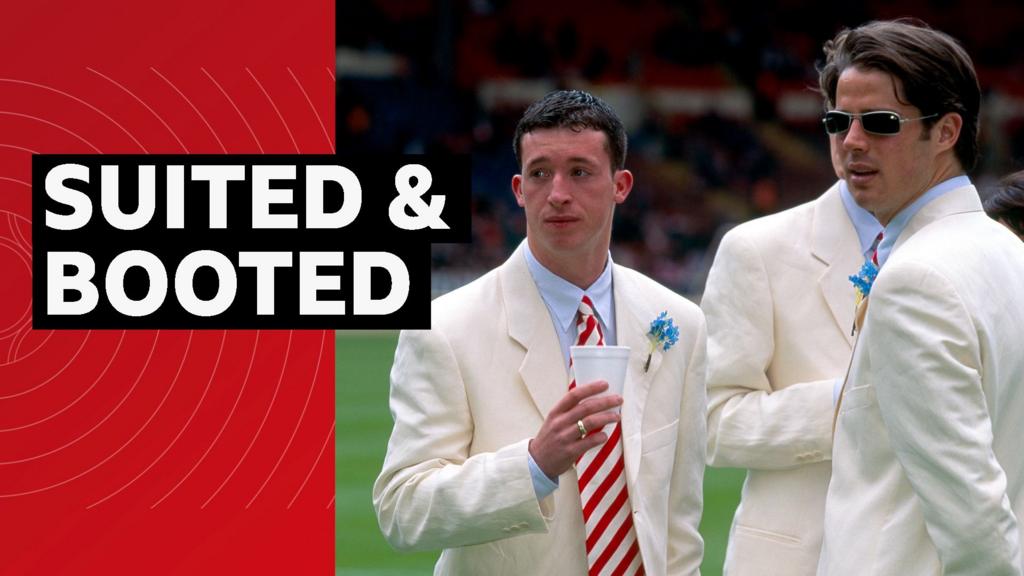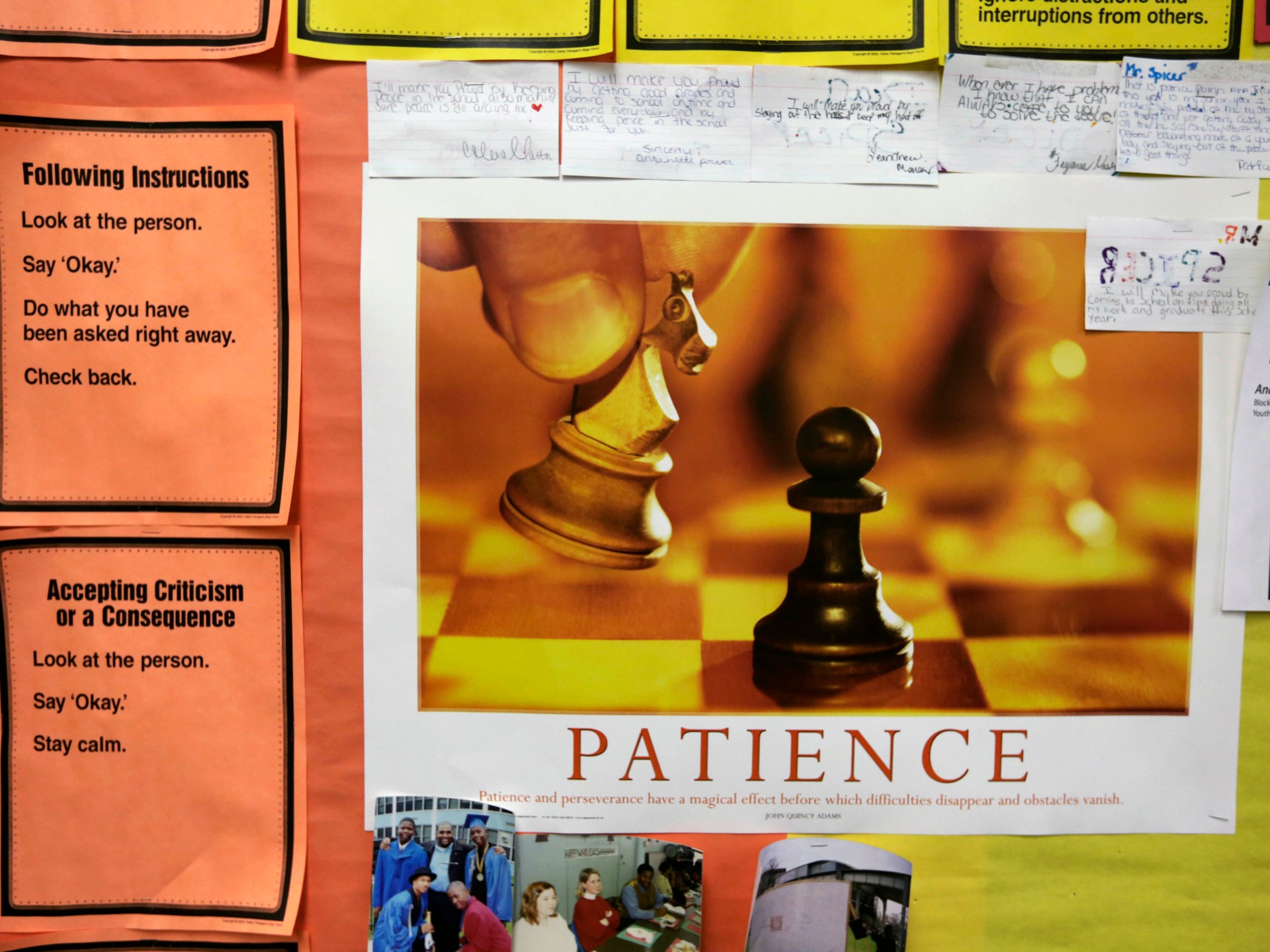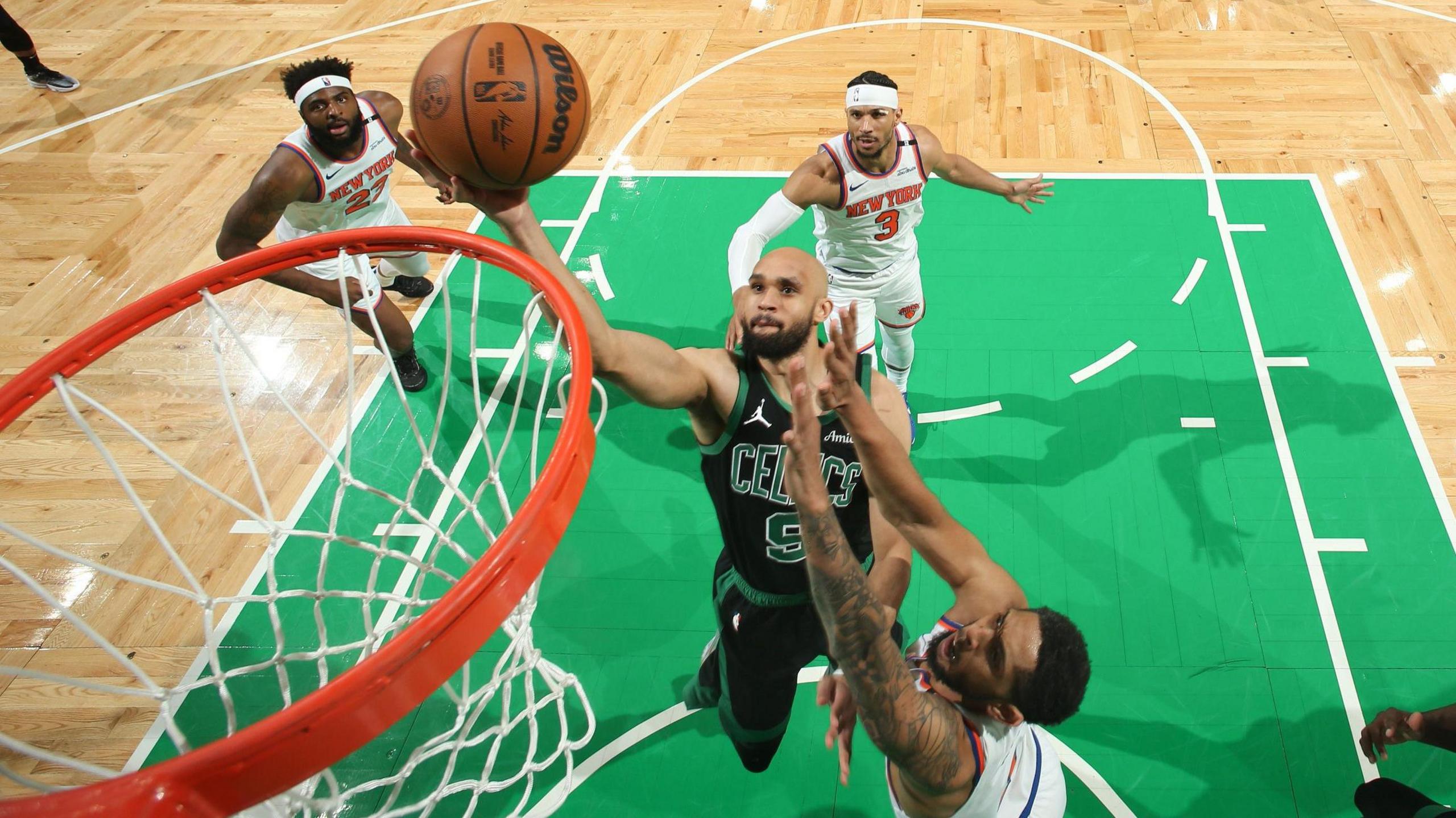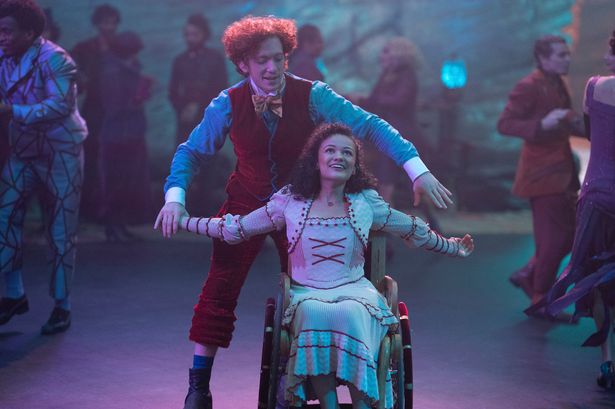BBC Sport looks back at the 1996 FA Cup final when the white suits worn by Liverpool players stole the headlines as they lost 1-0 to Manchester United at the old Wembley Stadium.
WATCH MORE: How Ceefax story sparked all-time FA Cup upset

BBC Sport looks back at the 1996 FA Cup final when the white suits worn by Liverpool players stole the headlines as they lost 1-0 to Manchester United at the old Wembley Stadium.
WATCH MORE: How Ceefax story sparked all-time FA Cup upset
The Zamfara State House of Assembly has passed a vote of confidence on Governor Dauda Lawal in recognition of his remarkable achievements in health, education, infrastructure, and the payment of outstanding entitlements to civil servants.
The House Leader, Hon. Bello Mazawaje, while moving the motion noted that, for the first time in Zamfara’s history, the state capital is experiencing rapid development, including the ongoing construction of an international airport.
Mazawaje further stated that even critics and opposition parties have come to acknowledge the governor’s developmental strides.
READ ALSO: Senate Confirms Appointment Of Five INEC Commissioners
The motion to pass the vote of confidence was supported by several lawmakers, including Hon. Yakubu Almajir (Bungudu East), Deputy Speaker Hon. Adamu Aliyu (Gummi II), Hon. Rilwanu Marafa (Anka), and Hon. Ibrahim Garba Liman (Gusau II), among others.
The lawmakers applauded the renovation and upgrade of general hospitals across the state, aimed at improving and making healthcare more accessible and affordable for all citizens.
They also highlighted the unprecedented growth in the education sector, which was achieved with the full support and approval of the Assembly.
The house further noted that many youths in Zamfara are now engaged in formal mining activities, creating employment opportunities and contributing to poverty reduction.
According to the legislators, Governor Dauda Lawal has restored the lost glory of the state across all sectors.
They urged the people of Zamfara to continue supporting the government in its quest to deliver the dividends of democracy to all, regardless of political affiliation.

In 2014, I was teaching English to undergraduate freshers at a university in Massachusetts. A student in class, behind on his work, grew angry with a new assignment we were working on. He picked up a chair and threw it past an aisle of students and across the room.
He then sat down as if nothing had happened. The chair did not strike anyone, but several students had to duck their heads. As someone who struggles with (post-traumatic stress disorder) PTSD and dissociation as a result of childhood abuse and domestic violence, I found myself frozen in front of my classroom, momentarily flashing back to previous violent incidents with a former partner.
I recalled this scene with my former student when I recently rewatched the four-part series Adolescence on Netflix. The series explores the consequences that befall a 13-year-old boy, his family, and community after he kills a female student who has bullied him online. As the police question Jamie, the main character, he continually denies his involvement. Eventually, a video of the murder is shown with Jamie stabbing the teenage girl.
To me, the fact that a boy could kill a girl and convince himself that he had done nothing wrong points to a major societal failure. Boys are taught that acting on anger is acceptable. We have normalised it.
When I was 25, I had been dating a man for several months. A friend of his was visiting and asked me if I was ready to go on an outdoor adventure with the two of them. In the spirit of the day, I said, “I was born ready.” My boyfriend misinterpreted this as a sexual innuendo and immediately slapped me hard across the face. No one said a word, and the day proceeded as if nothing had happened. My boyfriend’s friend never reached out to me after the incident. He never did or said anything that suggested that he thought the violence was unwarranted. That taught me that the violence was normal, acceptable behaviour.
My student’s behaviour frightened me to the point that afterwards, I did not feel confident that I could keep the other 20 class students safe in his presence. I approached my supervisors, who suggested I contact both campus security and our on-campus learning disabilities centre, which offered services for students with physical or cognitive issues.
I had expected campus security to have a conversation with the student and to document the chair event, so a paper trail could exist should further acts or threats of violence continue.
Instead, campus police said no one had been hurt, so there was no incident to report. The learning disabilities centre could tell me that the student was in their programme, but that they could not share any information with me about the student or how best to handle him.
Addressing these issues in young boys is critical to preventing serious violence in their behaviour when they grow older. We are failing our children and stand at a crossroads with increased violence in boys and young men that will only escalate if viable solutions are not found. My abusive former partner did not have a healthy male role model as he grew up. According to my abuser and his mother, he was not taught to curb his temper or monitor his anger.
I believe that awareness must begin with parents and at an early age.
Frustration and anger must be recognised, named and confronted. If young people can be taught to identify the actions that trigger their defensive or even uncontrollable responses, escalation can be prevented. When parents can acknowledge the child’s behaviour and point it out, solutions and alternatives to acting out can be offered.
“Time out” at home and school should not be used as a punishment but as an opportunity to step back, take a breath, and re-evaluate the situation. The process must be repeated and reinforced to become a new pattern of response. Encouraging boys to identify and express their feelings, whether they be anger, sadness, or frustration, can be a huge step forward in teaching them to become aware of those feelings, rather than just acting on them.
Once children enter school, discussions regarding feelings and appropriate actions must become a regular part of class instruction. A new definition of “time out” can offer students a practice in self-care, a healthy alternative to acting out anger. A time out in a school therapist’s office or with a guidance counsellor, or other trained staff, can become a safe place to calm down and discuss alternative responses to acting on anger.
In classroom instruction, role-play situations can help students learn and practise alternative responses to anger and aggression when they are confronted with upsetting stimuli. This type of practice and reinforcement can become a new automatic response if children are given sufficient feedback and opportunity in both home and school situations. Teaching issues of mental health in classrooms beginning at an early age can help destigmatise emotions of shame, isolation and powerlessness.
Embarrassment and shame can be significant triggers for both boys and girls, and in Adolescence, did in fact lead Jamie to fatally stab the girl who bullied him online. Shame and anger are normal human responses to certain situations, but addressing these feelings from a very young age can assist children in learning healthy and safe ways of coping rather than lashing out against others. My abuser was also experiencing shame when he assumed my response to his friend was sexual.
As a society, we teach boys and men that anger is acceptable. TV commercials and movies portray men as both physically and mentally strong to the point where any expression of vulnerability makes them weak and inferior.
It is time we teach boys and men that they are stronger, not weaker, when they are aware of and comfortable with their emotions.
Until men and boys can identify and switch emotional gears instead of acting on anger, we will never be able to create a society where all human beings — boys and men, girls and women — are able to interact with mutual respect and safety.

Here is where things stand on Thursday, May 15:

The Boston Celtics kept themselves in the NBA play-offs with a win against the New York Knicks as the Minnesota Timberwolves beat the Golden State Warriors to reach the Western Conference final.
The Celtics, the reigning NBA champions, were 3-1 down in the best-of-seven Eastern Conference semi-final and missing star player Jayson Tatum, who went off injured in game four and has had surgery on a ruptured Achilles.
However, they earned a convincing 127-102 win at TD Garden thanks to Derrick White’s 34 points, and 26 points, 12 assists and eight rebounds from Jaylen Brown.
Game five will take place in New York on Friday at 20:00 local time (Saturday 01:00 BST).
“We made winning plays on both ends of the floor,” said Celtics coach Joe Mazzulla. “They made enough plays to win – gave us another chance to play.”
Julius Randle scored 29 points and Anthony Edwards contributed 22 points and 12 assists for the Timberwolves at Target Center in Minneapolis.
The Timberwolves will play the Oklahoma City Thunder or the Denver Nuggets in the Western Conference final, with the former leading their series 3-2.
“It’s great,” said Randle. “We’ve had a season full of adversity. Coach (Chris Finch) said at the end of the regular season that we didn’t do anything as far as trades or firing coaches. We just stuck together and we got through it together.
“I’m super proud of our team, everybody that stepped up in some type of way this year. We’ve got to keep going.”
The Warriors did not won a game since losing star player Stephen Curry to a hamstring injury in game one.
“Injuries are part of the play-offs,” said coach Steve Kerr. “I learned a long time ago that the play-offs are really about health and then just guys stepping up and making some big shots, big plays in key games. That’s what decides every series.

Wicked star Marissa Bode has called out the Met Gala for its lack of disability inclusion. The actress took to social media to share her thoughts on fashion’s big night and its failure to include visibly disabled attendees, sparking a larger conversation of the failings of the fashion and entertainment industries.
On the day of this year’s Met Gala, May 5, Bode uploaded a video to her TikTok account with the caption “We belong in fashion!” She began: “What am I hoping to see at the Met Gala? Disabled people. This is another year of me once again asking ‘where are the disabled people’.”
She finished off the brief post by calling out the infamous Met Gala stairs – the setting for A-list attendees to reveal their themed looks. “Stairs should not just be a full aesthetic,” Bode shared, “Be inclusive. ‘Where are the disabled people?’ That’s my thought. Goodbye.”
READ MORE: Desi does dandyism: Met Gala 2025 spotlights two major South Asian designers
In the caption for the video, Bode named visibly disabled actors and models she considers “more than qualified to be in attendance,” including Jillian Mercado, Lauren “Lolo” Spencer and Aariana Rose Philip. She alludes that the Met Gala invites one visibly disabled attendee that can be “scratched off a diversity checklist”.
The video garnered over 40,000 views and Bode swiftly shared a follow-up video expanding on the failings of the fashion and entertainment industries. “One more thing about the Met Gala, but also the fashion [and] acting industries as a whole: disabled people have been screaming for years to be included. Not just, ‘Oh, you can book this one special diversity shoot. Oh, you can be a part of this one special episode.’ I mean, included.”
Bode called for industries to do a better job at including visibly disabled actors and models regularly to be representative of the space they take up in the world. In the follow-up video, she also rejects any narrative that disabled people are looking for a “saviour”, saying “all we want is to be heard and listened to and included.”
She goes further to explain that this conversation is part of a wider trend of “inspiration porn”. Essentially, boasting about how ‘inspiring’ disabled individuals are “but not doing anything in your everyday life to actually make sure that your spaces are accessible, or fighting alongside disabled people.”
To her point, she shares examples, such as inquiring about ramps in buildings and accommodations in schools. “If you’re in the industry and have the means to do so, ‘Hey, why aren’t there other disabled people at the Met? And who can I talk to to help that happen?'” says Bode.
“I am begging others and non-disabled people to uplift those voices and question those within your spaces — and those people within power to step it up. If y’all are truly allies, do the work. Help us all get there, because we cannot do this on our own,” she concluded.
The videos received a flood of support, with many calling out the fact that this year’s Met Gala theme of Black dandyism in particular lent itself well to disability inclusion. An opportunity overlooked by the chairs. “In a year where the cane is going to be a major fashion accessory… invite people who use canes for mobility reasons. It’s perfect” wrote one commenter.
This is not the first time that the Met Gala has been called out for its lack of disability inclusion. After last year’s event, disability advocate Hannah Diviney penned a letter directly to Anna Wintour – the Gala’s longtime co-chair who is notable for having a hand in every aspect of the event.
In her letter, Diviney criticised the event for its inaccessibility: “As a visibly physically disabled woman (I navigate the world in a wheelchair) there is perhaps no greater signal that people like me are not really all that welcome in the worlds of fashion, culture and the currency of how an invite into the upper echelons of power, fame, wealth and influence are won, than those goddamn stairs.”